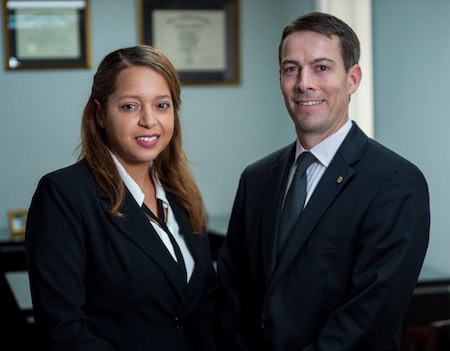The issue of small business ownership and how the business interest will be addressed in divorce proceedings is a major issue if either spouse is a business owner.
What happens to the business when the parties divorce?
A detailed analysis should be performed by experienced divorce counsel to determine a value to be assigned to the business and the business duties that have been performed by each spouse during the marriage.
The legal analysis performed regarding the marital business should ultimately render an opinion as to which spouse is better suited to run the business once the divorce is finalized.
Working toward a settlement agreement where former spouses continuing to own and operate a small business together after the divorce is final is not recommended.
The business and client relationships, skill, expertise and other vital components required to keep the business running should ultimately determine which spouse takes full ownership of the business as part of the divorce settlement.
This distribution of the business to one spouse will very likely come with strings attached if the business is a successful one. The spouse receiving the business may have the option of paying a one-time lump sum payment to the other spouse as part of the divorce to buy them out of the business. Another option is for the spouse receiving 100% of the business agreeing to pay a set monthly alimony payment to the spouse not receiving the business for a fixed number of years.
One other option that may be considered is to sell the business and for the spouses to split the profits from the sale. The problem with this option is that the vast majority of small businesses that employ less than 10 individuals rely primarily on the business owner and the goodwill that they have established with their client base and with the community.
A third party business person cannot buy this goodwill as part of the business. Personal goodwill is not a hard asset. Therefore, the business will not be nearly as valuable to a third party as it is to the business owner that build the business in the community and has an established book of business.
Mindful Divorce, P.A. understands the intricacies of divorce law and small business owners.
We have a proven track record of successfully guiding small business owners through divorce.
We understand that small business owners are a unique breed that have worked hard to build something special. The law firm you choose in divorce to protect your business should match your needs.
About the Author
 Chadwick M. Layton is a marital law and divorce attorney at Mindful Divorce, P.A. in Palm Beach County, FL. Mr. Layton is also a member of the Florida Bar Family Law Section, the Susan B. Greenberg Family Law American Inn of Court of the Palm Beaches and the Palm Beach Flagler Rotary Club.
Chadwick M. Layton is a marital law and divorce attorney at Mindful Divorce, P.A. in Palm Beach County, FL. Mr. Layton is also a member of the Florida Bar Family Law Section, the Susan B. Greenberg Family Law American Inn of Court of the Palm Beaches and the Palm Beach Flagler Rotary Club.
Mindful Divorce P.A.
205 Worth Ave. Suite 303
Palm Beach, FL 33480
Phone (561) 537-8227
Office E-Mail: Chad@mindfuldivorcepa.com




